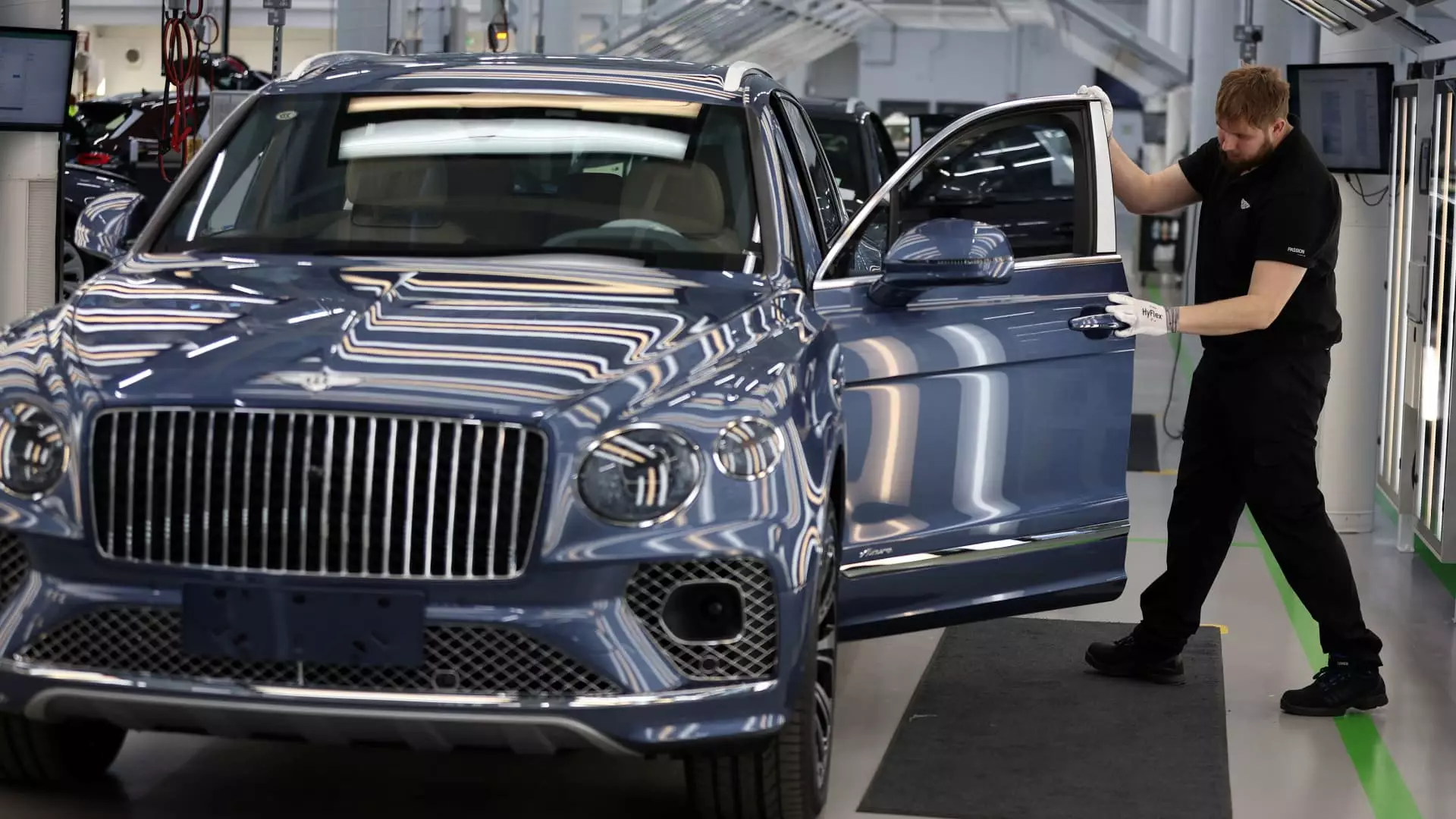In a decisive pivot, Bentley Motors has once again revised its timeline for a future dominated by all-electric vehicles. Originally set to transition to exclusively electric models by the end of the decade, the ultra-luxury car manufacturer has opted to extend its commitment to plug-in hybrid electric vehicles (PHEVs) until at least 2035. This shift underscores the complexities facing the automaker as it navigates evolving market conditions and customer preferences.
Bentley’s Chairman and CEO, Frank-Steffen Walliser, openly acknowledged during a recent media briefing what many industry insiders suspect: the demand for electric vehicles within Bentley’s traditional customer base remains tepid. According to Walliser, “there’s not a lot of demand,” a revelation that is crucial for understanding the company’s cautious approach to electrification. This lack of consumer enthusiasm raises important questions about the brand’s future strategy and market positioning.
One cannot ignore the dual forces of legislation and competition that are dictating the automotive landscape. Walliser stated that while regulations are certainly propelling the shift toward electrification, it is crucial to balance these external pressures with genuine consumer interest. The challenge lies in harmonizing regulatory requirements with the expectations of a niche clientele that has typically gravitated toward powerful, lavish vehicles equipped with internal combustion engines (ICE).
The vagueness around customer demand is a significant concern for Bentley, particularly when considering the company’s pedigree of offering high-performance, luxury vehicles. As a brand under the Volkswagen umbrella, Bentley is also under pressure to align with its parent company’s larger electrification goals, creating a multi-layered challenge that extends beyond mere production timelines.
Reflecting on its revised strategy, Bentley has announced plans to launch a new EV or PHEV annually until 2035, starting with an urban-focused Luxury SUV slated for 2026. While this approach demonstrates a commitment to gradual transformation, the delay from an initial rollout as early as next year highlights the complexities of adapting to a rapidly changing automotive ecosystem. Walliser’s and Matthias Rabe’s comments suggest a pragmatic alignment with prevailing market demands, indicating that the company is willing to maintain ICE vehicles longer than initially anticipated.
Rabe has also hinted that traditional combustion engines may still find a place in Bentley’s lineup, albeit in reduced capacity. This decision further complicates the narrative surrounding the luxury brand, which will have to articulate what distinguishes its offerings in a market increasingly dominated by electrification.
Part of Bentley’s response to the evolving landscape involves renaming its business strategy from “Beyond100″ to “Beyond100+.” This subtle shift in nomenclature reflects the necessity for adaptation in the face of new economic realities and technological challenges. The terminology change serves as a reminder of Bentley’s storied history while signaling its intent to forge a modern path forward.
In addition to strategic adjustments, the company has also discontinued the production of its iconic W12 engine, a move emblematic of its commitment to a cleaner automotive future. The ongoing focus on PHEVs—vehicles that combine traditional ICE with electric components—demonstrates a transitional approach rather than an immediate pivot to an all-electric lineup.
Bentley Motors finds itself at a crossroads as it seeks to reconcile luxury with sustainability. The lessons learned from previous leadership shifts and the current climate reinforce the necessity for agility in the luxury automotive market. Walliser’s admission of lower-than-anticipated demand and the continued reliance on hybrid models illustrate the complexities faced by legacy brands like Bentley.
As the company embraces the realities of the present while planning for the electric future, the balance between maintaining its heritage and innovating for new generations will prove crucial. The luxury automotive world is not just evolving; it is transforming, and how Bentley navigates this market will significantly impact its identity and profitability in the years to come. Thus, the emphasis remains on adapting, innovating, and most importantly, understanding the customer.

Leave a Reply